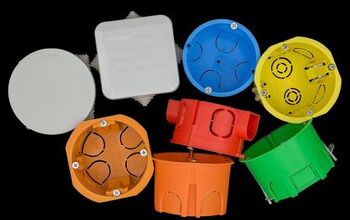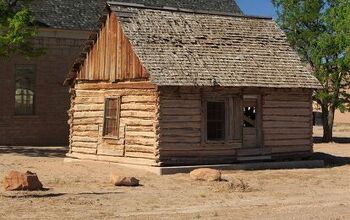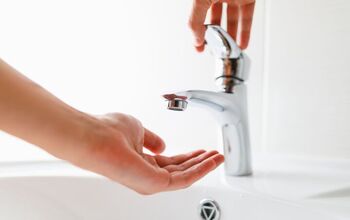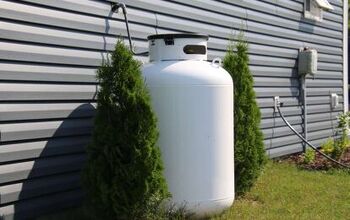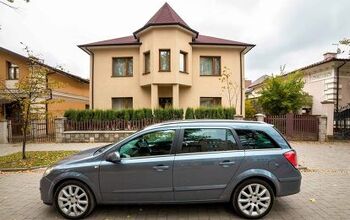Can A Gas Dryer Be Converted To Electric? (Yes, Here's How)

Many homeowners want to know whether or not they can convert their gas dryer into an electric one. Sometimes, they move into a home that only has electric hookups. Or sometimes it’s that they want a change of pace and want that conversion. However, is this even possible?
You can convert a gas dryer to an electric dryer if you exchange parts and rewire it to use an electric heat assembly. It is not cost-effective to convert a gas dryer to electric, and it is cheaper to buy a new electric dryer. You would need to replace the heating element, gas ignition, and burner to convert a dryer from gas to electric.
This article will cover all the differences between a gas dryer and an electric dryer unit. In order to understand the difficulty of this project, you need to understand the significant differences. That way, you can see where we’re coming from when we say it’s just not a good idea.
Understanding The Major Differences Is Vital
Before going into details about conversion, let’s understand what makes an electric dryer differ from a gas one. Propane and other natural gas dryers create heat via a gas burner. Apart from this, its operation is identical to that of an electric dryer.
A significant difference is that of cost due to the kind of energy source: Running costs of a gas dryer will typically be around 50% less than those of an electric model. They also have different installation requirements.
Finally, there’s a significant difference in the purchase price of electric and gas dryers. Typically, gas dryers cost more than electric ones.
Gas Model Dryers
Your gas dryer will be one of two types:
- Powered by propane
- Fueled by natural gas
Gas dryers must be vented to the exterior of your home. Electric dryers are typically vented to the outside of your home as well, but not for the same reasons. Inhaling the toxic particles a gas dryer puts off can cause dangerous health problems.
Electric Model Dryers
Gas dryers typically operate on 110-volts, whereas electric dryers use 240 volts to power the heating coils. This is double the power of a standard household current. If you only want to use 110 volts, it is possible to find smaller or even portable dryers that can use it.
In the same way as gas models, the vast majority of electric dryers need external venting to remove the hot air and water vapor. While specific models that don’t require vents are available, they are more expensive.
Differences In Installation Techniques
Gas Model Dryers
It is possible that your motive for wanting to convert your dryer, so it runs on electricity, is that there is no connection to a gas line. If this is the case, installing one will be expensive, as the local gas company will need to connect your home with underground natural gas pipes. To avoid this expense, you may want to explore whether you can connect your dryer to a liquid propane gas supply as an alternative.
Electric Model Dryers
It is far simpler to install an electric dryer: Plug the appliance into a 240-volt power source, and you’re ready to go. If there’s a laundry room in your home, most likely, you already have a power outlet specially designed to handle the additional energy requirements of the dryer. This will be linked to breakers in the main box.
The electric dryer has a large plug that consists of either four or three prongs to fit the outlet. The only problem which can arise is if the shape of the plug does not match the socket. If this is the case, either the plug or socket will need to be changed.
How Does Each Type Of Dryer Work?
Whether your dryer is powered by electricity or gas, it will use the same system to dry laundry:
- Air
- Heat
- Tumbling action.
Tumbling and the flow of air are equally necessary. Gas dryers use a burner, and electric dryers use a heating element to raise the temperature inside the dryer to a level which will water to evaporate.
In electric dryers, the electrical current moves through the heating coil, causing a build-up of electrons and heating the metal. This causes the air to become hot, and it is then propelled into the dryer drum with a fan or blower.
However, when a natural gas or propane gas dryer operates, an igniter causes the gas to burn. The fan or blower then pushes the heated air into the drum the same way it would in an electric dryer.
The Venting System
Both gas and electric dryers must be adequately vented to the property’s exterior to remove hot moist are and particles of lint and other debris. Without correct ventilation for your dryer, the laundry room would soon be full of mildew and dust, which could cause respiration and other health problems.
In addition, a gas dryer vent serves to expel the waste products from the burnt gas, which could be toxic over time. In apartments, an electric dryer is a better option as there are ventless models on the market, and these dispense with the need for external venting.
So, Can A Gas Dryer Be Converted To Electric?
While the short answer is yes, experts advise against this for a number of reasons.
It’s Not Cost-Effective
Gas dryers work in a different way than electric ones, and as a result, contain various components. Gas dryers use an igniter, a gas burner, and other parts not found in an electric model. Therefore, all the elements which allow it to operate with gas would have to be removed.
Also, burner tubes, fuses, safety features, and the temperature at which the dryer runs are entirely different. This means that in order to take on this project, you’ll need considerable knowledge of wiring, currents, and appliance operation.
They Operate On Different Electrical Currents
As previously mentioned, gas dryers use a 110-volt current, whereas electric dryers operate on 240-volts. Therefore, you’d have to modify your gas dryer to a more powerful current, which can be dangerous if you do not know what you’re doing.
Cheaper To Buy An Electric Dryer
The bottom line is that electric dryers are less expensive to purchase than gas dryers. The best option may be to sell your gas dryer and buy a new electric one. In the end, this will be more cost-effective, save time, and avoid potential conversion issues.
Converting From Gas To Propane
However, if you want to convert your dryer, it’s much easier to convert it from natural gas to propane instead of electric. You can start by running a 240-volt, single-phase circuit, then cap the gas line.
After that, you have to replace specific components, such as the:
- Controls
- Heating assembly
- Wiring
- Relays
- Any other components which need to be substituted.
After that, you can restore the power, light the pilot, and your gas dryer is not converted to propane!
Related Questions
Are gas dryers better than electric?
Gas dryers can dry your clothes more quickly than electric dryers because they run much hotter. It is also cheaper to run a gas dryer than an electric one, making it more cost effective. Gas dryers are more energy efficient than electric dryers and they perform better.
Are gas dryers safe?
Gas dryers are generally safe, but there is a risk that gas will leak into your home. Carbon monoxide leaks are also a risk of running a gas dryer, and that can be deadly in some cases. Install your gas dryer properly or with professional help and vent it so that you can safely run a gas dryer.
Do electric dryers need a vent?
Yes, you need to vent electric dryers. Electric dryers produce moisture and warm air that can create unsafe mold conditions. Local and state codes require that you vent electric dryers to prevent wood rot and health problems.
Buy An Electric Dryer
Aside from the DIY project itself, there is no reason to convert your gas dryer to an electric one. It would be a far better idea to sell your gas one and buy an electric dryer with some of that money. Not to mention, if you convert it, and you do it wrong, you’ll have thrown hundreds of dollars down the drain. You might as well put your money into something of value, rather than spending that to convert a dryer you may not be able to use correctly.

Heather is a passionate writer who loves anything DIY. Growing up, she learned everything from home repairs to design, and wants to share her tips with you. When she's not writing, she's usually hiking or searching for her next DIY project.
More by Heather Robbins



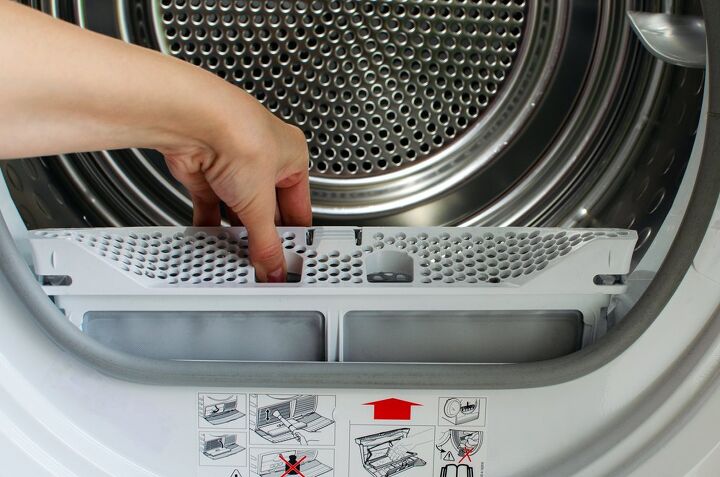
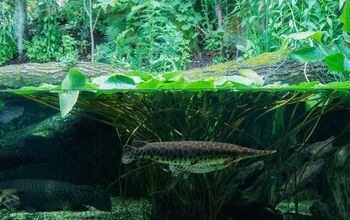








![The 5 Best Angle Grinders – [2022 Reviews & Buyer's Guide]](https://cdn-fastly.upgradedhome.com/media/2023/07/31/9071326/the-5-best-angle-grinders-2022-reviews-buyer-s-guide.jpg?size=350x220)
